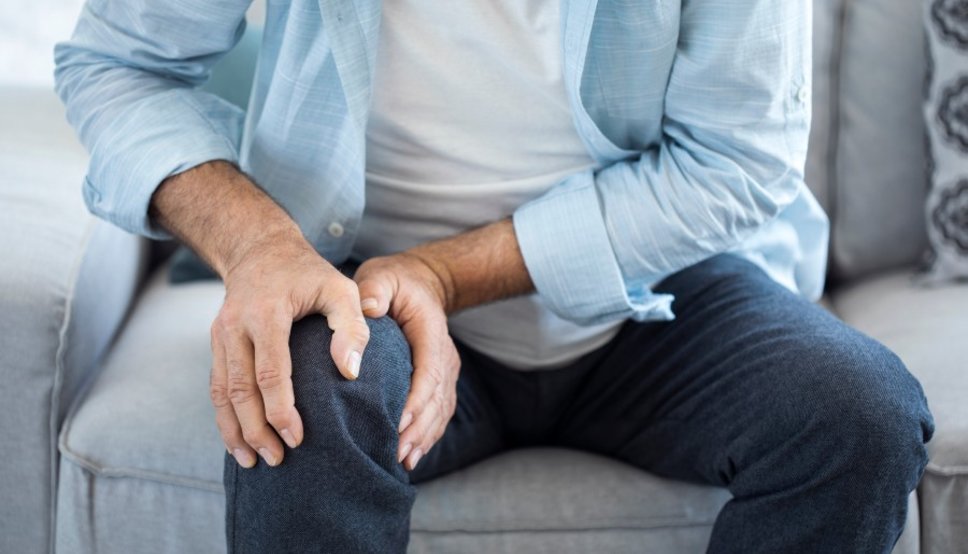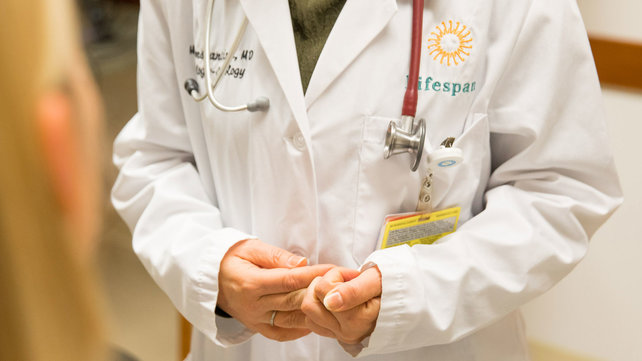Can Hip or Knee Arthritis Be Reversed?

Arthritis comes in many forms, but it’s helpful to think of them as being divided into two groups — inflammatory arthritis and osteoarthritis.
Inflammatory arthritis, such as rheumatoid arthritis or psoriatic arthritis, is caused by an auto-immune condition, whereby a patient’s body mounts an immune response toward their joints. The result is swelling, pain, and the eventual destruction of the joint.
The suffix “itis” on a medical term typically means it is an inflammatory condition. Osteoarthritis, however, may be more accurately termed “osteoarthrosis,” because it is not believed to be primarily an inflammatory condition. Rather, it is more a wear and tear type of destruction of the joint. This can be caused by genetic predisposition, anatomic variation, and a patient’s activity and trauma history.
The reason why hips and knees are very commonly affected by arthritic conditions is up for debate. From an evolutionary biology standpoint, as humans developed upright posture and walking, changes occurred in how stress was placed on knee and hip joints. From an engineering standpoint, we bear our weight through our hips and knees. While we may also develop arthritis in the shoulders and elbows for instance, we don’t walk on our hands and so hip and knee arthritis are more likely to be disruptive to our lifestyles and prevent us from living the active life we would desire to lead.
The signs of arthritis
The most common sign of arthritis in our patients is usually joint pain. Other signs include stiffness, swelling, and feeling like there is a mechanical block to motion, such as clicking or popping. Often times patients will say that they have pain that makes it difficult for them to sleep at night but during the day it’s better. This is likely due to a mechanism in our brains that blocks signals from reaching our higher conscious understanding to protect us from being barraged with distractions during the day. At night this brain center tends to turn off and so we feel some pains that we don’t recognize during the day.
Risk factors
In really simple terms, the causes of arthritis are “mother nature” and “father time.” By mother nature, I mean that having a family history of arthritis can increase your chances of developing arthritis yourself. Studies have shown that there is a genetic predisposition to developing some joint problems. By father time I mean that what you expose your body to during your lifetime can result in the breakdown of your joints. Your hip and knee are mechanical devices. Like the tires on your car or the rubber on the soles of your shoes, they can only travel so many miles until they wear out.
Many patients with arthritis have histories of being very active in athletics or have jobs that demand a lot of time on their feet, which can lead to wear and tear on their bodies. Weight is also a factor and in America, many of us are heavier than we should be and that also takes its toll on our joints.
Treating and living with arthritis
Once a patient is diagnosed with arthritis, treatment options include modifying activities, using gait aids, nonsteroidal anti-inflammatory medications, and joint injections. In most cases these treatments can significantly help with our patient’s arthritis pain and symptoms for many years.
With the introduction of biologic medications such as Humira, Remicade, and Enbrel, patients with inflammatory arthritis have seen dramatic improvements. In fact, in our hip and knee joint reconstruction practice, we now rarely see inflammatory arthritis patients progressing to the need for joint replacement without also having osteoarthritis. A patient can have both inflammatory arthritis and osteoarthritis, but it’s the osteoarthritis that in most cases nowadays results in the need for joint replacement.
When disability, loss of motion and pain reach a point so severe that it affects a patient’s quality of life, joint replacement surgery has proven to be very effective in relieving pain and restoring function to our patients. When that time comes, I am grateful that here in Rhode Island we have a talented and dedicated team of professionals in our Total Joint Center, providing an outstanding level of surgical care to our patients. Based on the verified outcomes databases in which we participate, the outcomes of our joint replacement patients are equal to or better than benchmarks set at orthopedic centers and large specialty hospitals across the country.
Prevention
Living a healthy, active lifestyle is the best way to prevent many medical conditions. But due to the demands of our jobs, modern life, and family history, over time most of us will likely suffer from some degree of osteoarthritis at some point in our lives.
The good news is that we have many effective treatments and most are non-surgical. Common sense changes that we can all make include:
- maintaining a healthy weight
- avoiding nicotine products and vaping/smoking
- working into our weekly schedules some form of cardiovascular and strength-building exercise
Supplements
Studies that have been done to evaluate the use of supplements such as glucosamine/chondroitin or others are not conclusive and often times these medications are expensive, so I do not routinely recommend them. Also, supplements are not verified through the Food and Drug Administration (FDA) approval process like medications.
Some patients, however, do tell me that supplements are working for them. In those instances, I suggest that although not FDA-approved, it is rare to hear of patients being harmed by these supplements. The final decision on whether to take the supplement is up to the patient.
There is good evidence to support the use of a daily multivitamin, calcium and vitamin D in those patients who are deficient, and eating a protein rich, varied, low-fat and healthy carbohydrate diet. Research into effective prevention methods and promising new therapies is ongoing in our labs here at Lifespan, Brown and University Orthopedics, and I’m excited to be a part of some of those studies.
Can arthritis be reversed?
Unlike inflammatory arthritis, for which biologic medications have revolutionized treatment, no similar medication cure has yet been discovered for osteoarthritis. Orthopedic surgeons and researchers across the globe and here at our labs are currently in pursuit of a cure. Exciting breakthroughs have been made but none that have yet translated into a way to reverse osteoarthritis. The race toward a cure continues.
Learn more about our Total Joint Center and how we can help you.

About the Author:
Derek R. Jenkins, MD
Dr. Derek Jenkins is an orthopedic surgeon with the Brown University Health Orthopedics Institute and assistant professor at The Warren Alpert Medical School of Brown University. He specializes in adult reconstruction of the hip and knee, with a special interest in direct anterior total hip replacement, gap balanced total knee replacement, partial knee replacement and revision of failed/infected joint replacements.
Find a Doctor

The right provider is in our network
Search more than 1,200 providers in our network.



